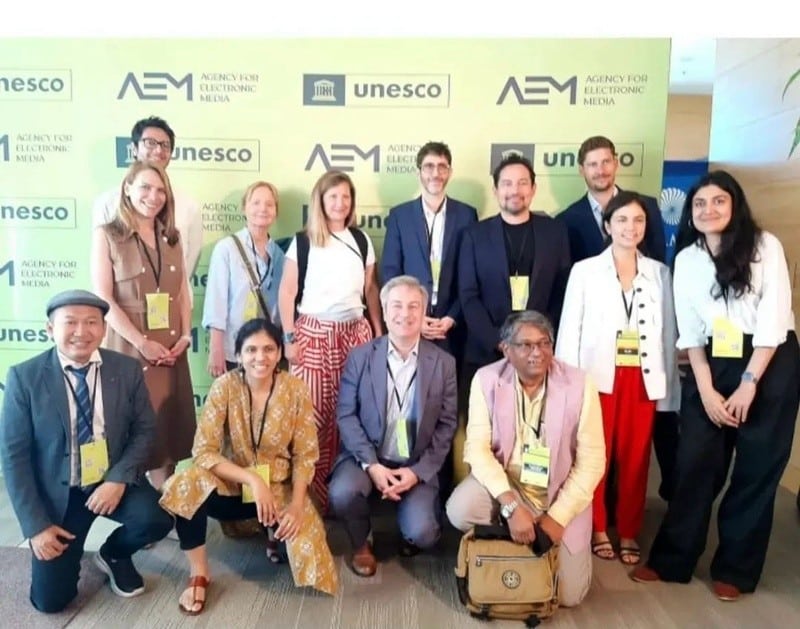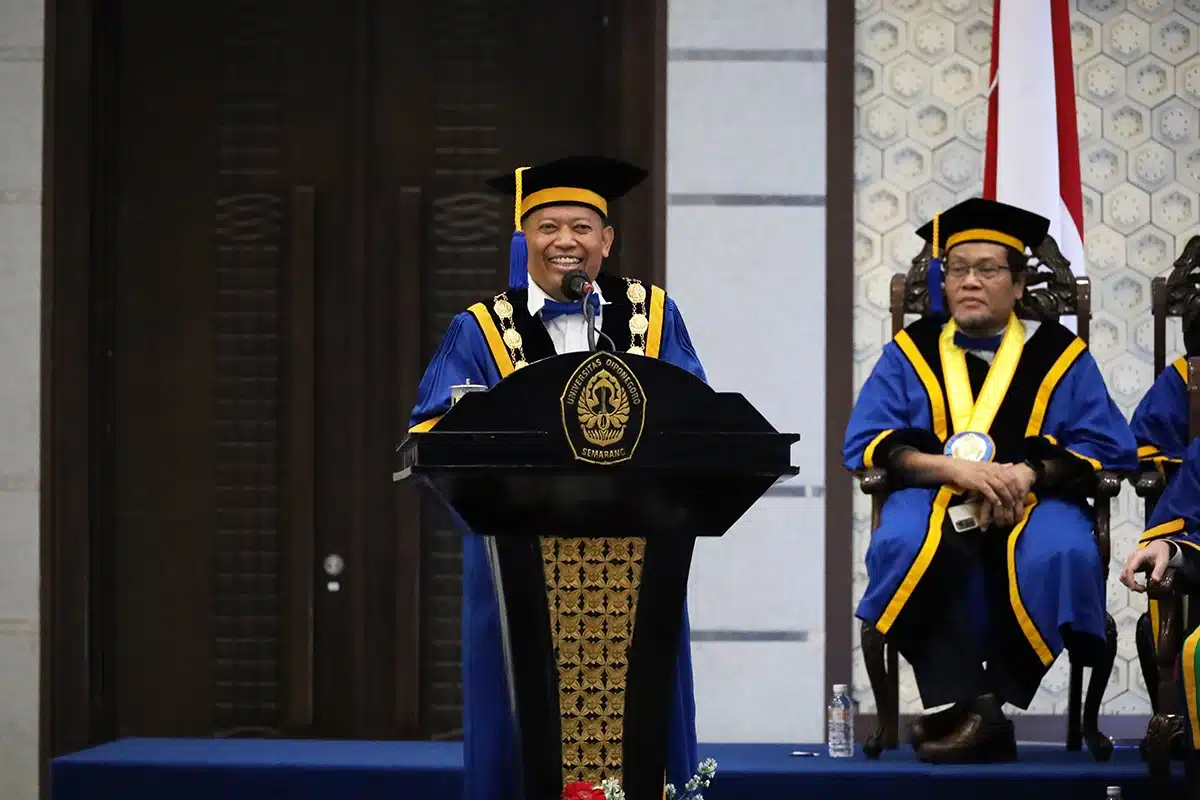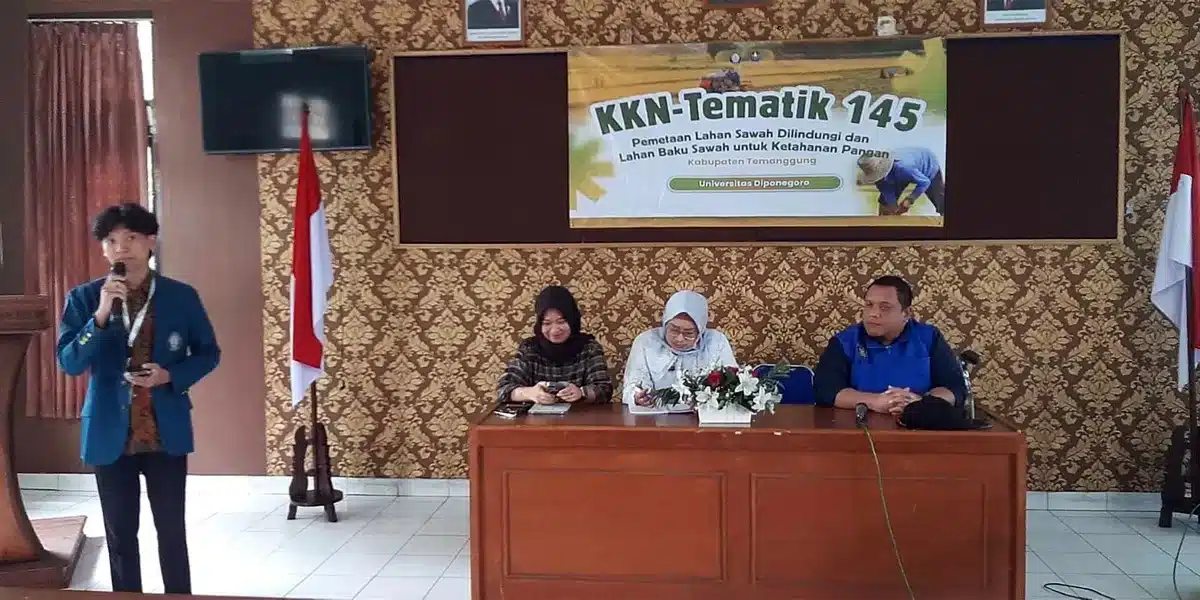SEMARANG – Recently, the Department of History, Faculty of Humanities, University of Diponegoro held a Visiting Professor with the theme “The Phenomenology of Javanese Performing Arts: Topics and Possibilities for International Publications”, inviting Associate Professor Jan Mrázek, from the Department of Southeast Asian Studies, Faculty of Arts and Social Sciences National University of Singapore (NUS) as a speaker. The Visiting Professor was held for 3 consecutive days online via the Zoom platform.
Dr. Dhanang Respati Puguh, M. Hum., as Head of the Department of History, Faculty of Humanities, Diponegoro University, explained the important agendas of the Visiting Professor for three days. On the first day, an Academic Meeting was held, which became a medium for the participants to interact with the speakers, while telling the research plans that were being written by each participant. On the second day, it was filled with lectures with the title “Fenomenolgy of Javanese Performing Arts” and consultation on scientific articles for publication in reputable international journals. On the third day, consultations on scientific articles were carried out for History students, both S1, S2, and S3.
On this occasion, the Dean of the Faculty of Humanities, Dr. Nurhayati, M. Hum., expressed full support for the implementation of the Visiting Professor inviting speakers from NUS, “I hope the facilitation of scientific article consultation can encourage students to be more active in completing research and publishing their articles in reputable national and international journals.”
Lectures on phenomenology are important because they pay attention to reality in human experience or everyday life. The phenomenological tradition looks like a dialectic between philosophers. There are several prominent philosophers and are often associated with phenomenology, including Edmund Husserl who is considered a pioneer of phenomenology. A Jew living in the Czech Republic (formerly the Kingdom of Austria-Hungary), Husserl prioritizes subjective experience as the source of all knowledge of objective phenomena. Apart from Husserl, Martin Heidegger is considered the most important and controversial 20th century philosopher because he joined the Nazi Party (NSDAP) on May 1, 1933. Heidegger explores many ontological questions, such as what it means for humans to exist. There is also another philosopher, namely Merleau-Ponty, whose philosophy was originally heavily influenced by the phenomenology of Husserl and Heidegger. The Merleau-Ponty philosophy examines the unity of taste, the experience of taste, the concept of the state, and the primacy of perception.
Phenomenology spreads to various aspects, for example in the field of performing arts or theater. Performance phenomenology emphasizes reality, experience, events, and performances. Previously, discourses on European theatrical performances often only focused on analyzing texts or biographies to see their meaning and symbolism, thus tending to overlook the significance of the performances. However, in phenomenology, the emphasis is on the performance itself. “Like the term ‘phenomenon’, phenomenology tries to reveal itself as it reveals itself. A dialogue between me and what I see, feel, and respond to,” said the Associate Professor who is the founder of the NUS Singa Nglaras Gamelan Ensemble.
What is interesting is how phenomenology can be used to write and investigate performing arts, culture, or history. Phenomenology can be a source of inspiration to investigate Javanese performing arts. “For example, as a wayang researcher, I don’t see wayang far from the object of research or just read a book about wayang performances, but the main data must come from my experience when watching the show. The researcher must also enter the world he is researching in, he can’t come from outside.”
This Visiting Professor is also a medium of consultation for students who are completing research. There were a dozen students who presented their research in turn, “I consulted on the topic plan of my thesis regarding Aktuil magazine as one of the influential mass media for the development of rock music in Indonesia in 1967-1986. I am delighted to have had the opportunity to consult with Dr. Jan Mrázek, he gave a lot of input and even included additional literature that could support my research plan,” explained Debora Alfi Teofani, a 7th semester student of the S1 Department of History, Faculty of Humanities Undip.
Associate Professor Jan Mrázek also mentioned journals that could be targeted for culturally nuanced research, including JSEAS, Japanese Journal of Southeast Asian Studies, Sojourn, Indonesia (Cornell), Indonesia Circle, Indonesia and the Malay World, Archipel, BKI, Asian Theater Journal, Asian Music, Asian Studies: Journal of Critical Perspectives on Asia, Archiv Orientalni, Kritika Kulura, and so on. (Fanada / History)












